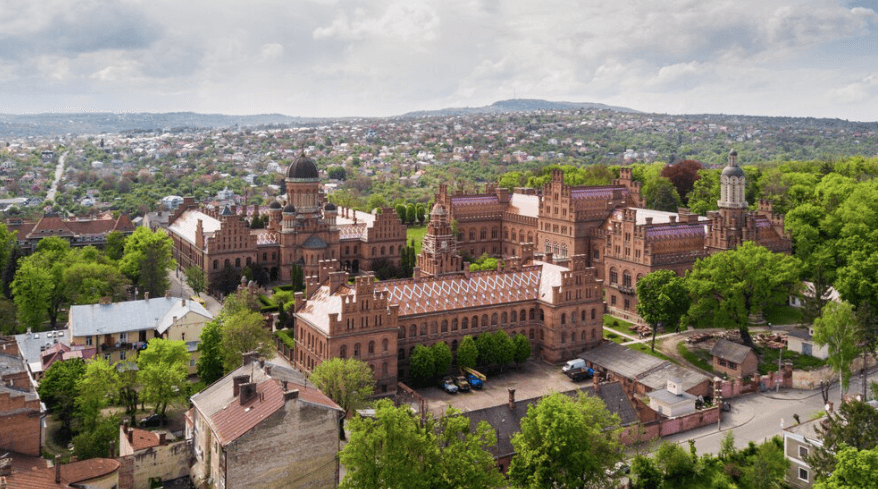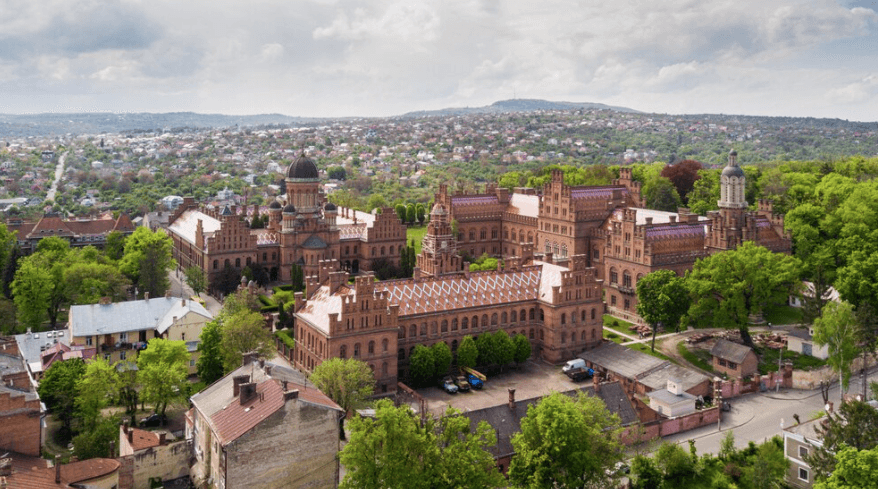Are you dreaming of becoming a doctor and exploring the world? Studying MBBS in Georgia might be the perfect choice! With top-notch universities, affordable tuition fees, and a welcoming environment for international students, Georgia has become a popular destination for medical studies. This guide will walk you through everything you need to know to start your MBBS journey in Georgia.
Georgia has rapidly emerged as a premier destination for international students seeking to pursue an MBBS degree, thanks to its high-quality education, affordable tuition fees, and programs taught in English. Situated at the vibrant crossroads of Eastern Europe and Western Asia, Georgia offers a unique fusion of rich cultural heritage, safety, and modern amenities, making it an exceptional choice for future medical professionals.
Want to speak to an expert before you apply? Book a Call with Global Admissions Here!
Medicine in Georgia
Georgia boasts a well-developed medical education system and is home to some of the best medical universities in the region. The country offers English-taught MBBS programs for international students, enabling students from non-Georgian-speaking countries to receive a globally recognized degree without language barriers.
The MBBS degree in Georgia is structured to provide students with a strong foundation in basic sciences, clinical skills, and modern medical practices. With Georgia’s increasing recognition as a hub for medical education, its universities offer excellent facilities, hands-on clinical training, and opportunities for international students to gain real-world experience in top hospitals across the country.

Why Study MBBS in Georgia?
Georgia offers high-quality medical education with globally recognized degrees, making it an attractive option for international students. The country is known for its rich cultural heritage, safe environment, and student-friendly atmosphere. Plus, with English-taught programs, language won’t be a barrier. Most Outstanding Reasons to Study MBBS in Georgia:
1. Globally Recognized Degrees
MBBS degrees from Georgian universities are accredited by institutions like the World Health Organization (WHO), the Medical Council of India (MCI), and European medical councils. This global recognition ensures that graduates can pursue medical careers or further studies internationally.
2. Affordable Tuition Fees
Studying MBBS in Georgia is highly affordable compared to other countries, with tuition fees ranging between $3,000 and $8,000 annually. The low cost of living also makes it one of the most budget-friendly study destinations for international students.
3. English-Taught Programs
Georgia offers English-taught MBBS programs, which eliminates language barriers for international students. This allows students to focus on their studies and gain medical proficiency without needing to learn a new language.
4. Strong Clinical Exposure
Georgian medical universities emphasize hands-on clinical training from the early stages of the program. Students gain practical experience in modern hospitals, ensuring they are well-prepared for real-world medical challenges.
5. Safe and Welcoming Environment
Georgia is known for being a safe and hospitable country, making it an ideal destination for international students. Its rich cultural heritage, pleasant climate, and friendly people ensure a welcoming environment, allowing students to feel at home while pursuing their education.

Overview of MBBS Programs in Georgia
Georgia has emerged as a prominent destination for medical education, offering several highly regarded universities recognized globally for their MBBS programs. Institutions such as Tbilisi State Medical University, David Tvildiani Medical University, and European University attract students from all over the world, creating a diverse and inclusive campus environment that prepares students for careers in an increasingly global healthcare system.
The MBBS program in Georgia typically spans 6 years, combining 5 years of academic learning with 1 year of internship or clinical practice. The curriculum covers medical sciences, clinical skills, and patient care, ensuring a well-rounded education. Georgian medical schools emphasize evidence-based medicine and provide students with opportunities to engage in research and hands-on clinical experience in hospitals throughout the country.
International students benefit from English-taught programs, making it easier to focus on their studies without language barriers. Many universities in Georgia also collaborate with global institutions, allowing students to participate in international exchange programs and research initiatives.
To apply, international students typically need a high school diploma, proficiency in English (some schools may require IELTS/TOEFL scores), and meet specific eligibility criteria set by each institution.
In addition to academic excellence, studying in Georgia offers a rich cultural experience, from exploring its stunning landscapes to engaging with its history and traditions. Students can immerse themselves in a welcoming environment while pursuing a globally recognized degree.
Where is an MBBS Degree from Georgia Recognized?
MBBS degrees from Georgian universities are recognized by several international bodies, including the World Health Organization (WHO) and the National Medical Commission (NMC) of India. Graduates are eligible to practice medicine in many countries, including European Union nations, after passing the necessary licensing exams.

Universities for MBBS Programs in Georgia
- Tbilisi State Medical University: One of the oldest and most prestigious medical universities in Georgia, known for its rigorous curriculum and clinical training.
- David Tvildiani Medical University: Offers European-standard medical education with a focus on clinical research and practical experience.
- European University: Known for its international student community and strong academic support, offering modern facilities for medical education.
- New Vision University: Offers a comprehensive MBBS program with a focus on both academic and clinical excellence.
- Ivane Javakhishvili Tbilisi State University: Another leading institution, recognized for its strong research output and medical training.
These universities provide a balanced mix of theoretical knowledge and practical training, ensuring that graduates are well-prepared for the demands of the medical profession both in Georgia and globally.

Application Process for MBBS in Georgia
Admission Requirements
- AgeRequirement: Applicants must be at least 17 years of age.
- High School Diploma: A diploma with a strong focus on physics, chemistry, and biology is required.
- Proficiency in English: For English-taught programs, proof of English proficiency is required. Most universities accept IELTS or TOEFL scores. Some universities may also conduct their own English proficiency tests.
- Medical Fitness Certificate: A certificate confirming that the applicant is in good health.
- For Indian Students: A valid NEET score is mandatory, typically a score of 50% or higher.
Documents Needed
- Copy of passport (valid for at least 6 months).
- High School Transcripts (translated into English and notarized).
- Passport-sized photos.
- Health Certificate showing medical fitness.
- Completed Application Form signed by the applicant.
Dates and Deadlines
The important dates for applying to MBBS programs in Georgia may vary depending on the university, but the general timeline is as follows:
- Application Period: June to October.
- Admission Process: Typically takes 3-5 weeks after submitting the application.
- Visa Processing: Students should apply for their student visa as soon as they receive their admission letter.
- Academic Session Start: September or October.
It is important to check specific deadlines on the chosen university’s website to ensure timely submission of all documents and applications.
Fees & Scholarships for Studying MBBS in Georgia
Tuition Fees
To give you an idea of how much it costs to study MBBS in Georgia, here are the recent program fees at different universities. Make sure to check the university's website for the most up-to-date fees before applying. Each year, tuition fees may vary.
University Name | Fee (Yearly) | Total Program Fee |
Tbilisi State Medical University | $8,000 USD | $48,000 USD |
David Tvildiani Medical University | $8,000 USD | $48,000 USD |
European University | $5,500 USD | $33,000 USD |
New Vision University | $7,000 USD | $42,000 USD |
Ivane Javakhishvili Tbilisi State University | $8,000 USD | $48,000 USD |
The tuition fees for MBBS programs in Georgia are quite affordable compared to other countries. In addition, many universities offer flexible payment options. Students are also required to cover living expenses, which are lower compared to Western Europe or the US.

Scholarships
There are various scholarships and financial aid options available for international students who wish to pursue MBBS in Georgia:
- Government Scholarships: Some Georgian universities and government bodies provide scholarships for international students, typically based on academic merit or financial need.
- University-specific Scholarships: Many universities, such as Tbilisi State Medical University and David Tvildiani Medical University, offer their own scholarships, which can cover a portion of the tuition fees or provide stipends for exceptional students.
- ExternalScholarships: International organizations, NGOs, and other external agencies also offer scholarships or grants to students from developing countries who want to study in Georgia. These include various programs by international educational foundations and organizations.
Career Prospects for MBBS
Graduates from Georgia An MBBS degree from Georgia provides students with the qualifications to practice medicine both within Georgia and internationally. Georgian universities are recognized by global bodies such as the World Health Organization (WHO) and the Medical Council of India (MCI), which allows graduates to pursue medical careers in various countries after clearing the required local licensing exams.
To practice medicine in Georgia, graduates must complete their internship, pass the national medical licensing exam, and register with the Georgian Medical Professional Association. Once licensed, they can work in hospitals, clinics, or pursue specialized training. The average salary of a doctor in Georgia ranges between $40,000 to $80,000 annually, depending on the specialization and experience level.
Georgian MBBS graduates can also pursue careers in countries like the United States, the UK, Canada, India, and European Union nations, provided they pass the necessary licensing exams such as the USMLE (United States Medical Licensing Examination) for the US, PLAB for the UK, and MCI screening for India.
Additionally, graduates have the option to continue their medical specialization or pursue research opportunities either in Georgia or internationally, contributing to further advancements in their field. The international recognition of Georgian MBBS degrees opens a wide range of career paths for graduates globally.
Life in Georgia
Georgian Culture
Georgia is renowned for its rich cultural heritage, characterized by a deep history, traditional music, dance, and festivals. Georgian culture places a high emphasis on hospitality—a key part of everyday life—where locals warmly welcome international visitors and students alike. Family, tradition, and community are at the core of Georgian values, and this is reflected in their strong sense of togetherness. As a student in Georgia, you’ll quickly find yourself immersed in this close-knit culture, which encourages forming bonds and participating in communal celebrations.
Environment
Georgia offers a striking diversity in its natural environment, from the snow-capped Caucasus Mountains to the lush vineyards of Kakheti and the Black Sea coastline. This diversity provides countless opportunities for outdoor activities such as hiking, skiing, and exploring UNESCO World Heritage Sites like Mtskheta. The country’s moderate climate allows for year-round exploration, whether it’s enjoying the coastal breeze in summer or the winter landscapes in the mountainous regions.
Cost of Living
The cost of living in Georgia is quite affordable compared to many Western countries, making it ideal for international students. Major cities like Tbilisi are relatively more expensive, but smaller cities and towns offer lower living costs, making accommodation, transportation, and food highly affordable for students. A typical student budget covers rent, utilities, and meals, with room for recreation and travel.
Language
The official language of Georgia is Georgian, which has its own unique script. However, many young people and professionals, especially in urban areas, speak English, making it easier for international students to communicate. While not mandatory, learning basic Georgian can enrich your cultural experience and help you better connect with locals. Many universities also offer language support for international students.
Transportation
Georgia has an efficient and affordable public transportation system. Buses, minibusses (known as marshrutkas), and the metro system in Tbilisi make it easy to navigate the cities and travel between them. For students, transportation costs are typically low, and there are discounts available for public transport. Georgia is also home to well-connected airports in Tbilisi, Kutaisi, and Batumi, making travel within and beyond Georgia convenient.
Healthcare
Georgia has a well-established healthcare system. As an international student, you are required to obtain health insurance that covers basic healthcare services, including doctor visits and hospital stays. Many universities offer on-campus clinics or healthcare facilities to provide additional support to students, ensuring access to medical assistance during their studies.
Food & Cuisine
Georgian cuisine is world-renowned for its rich flavors and unique dishes. Staples like khachapuri (cheese-filled bread) and khinkali (dumplings) offer students the chance to experience authentic Georgian food. Georgian dining culture emphasizes sharing, making it a social experience where meals are enjoyed together with friends and family. Students can explore local markets, street food, and restaurants to enjoy a variety of delicious and affordable dishes.
Life as an international student in Georgia offers a vibrant cultural experience coupled with affordable living, diverse landscapes, and a welcoming atmosphere. Whether you're exploring the country's breathtaking environment or indulging in its flavorful cuisine, studying in Georgia provides both academic opportunities and personal enrichment.

Apply to Study in Georgia
If you’re interested in studying MBBS in Georgia, browse and apply to programs through the Global Admissions platform. Georgia offers an enriching blend of world-class education and cultural discovery, providing the perfect backdrop for your medical journey.

